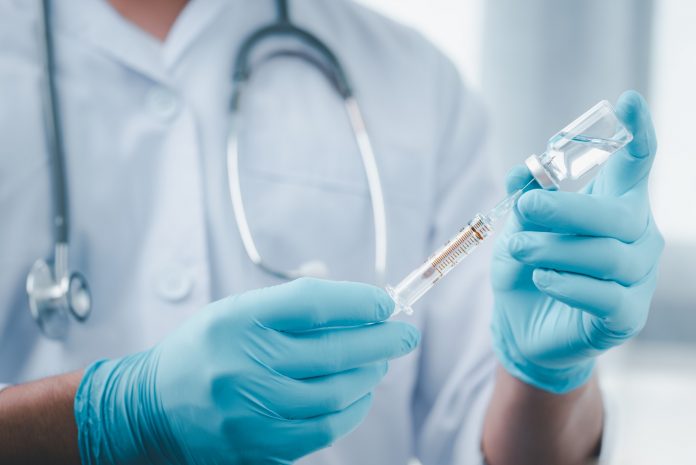Aboriginal and Torres Strait Islander peoples and communities are at increased risk as Australia opens up, due to dangerously lagging Covid-19 vaccination rates.
The Royal Australian College of General Practitioners (RACGP) says that as the holiday season approaches and people start moving around the country and mingling more, vaccine coverage among Aboriginal and Torres Strait Islander communities continues to lag behind non-Indigenous populations.
While currently 80.6% per cent of all Australians aged 16 and older are fully vaccinated against Covid-19 and 89.4% have had one dose, that figure sits at 54.5% fully vaccinated and 66.2% one dose for Aboriginal and Torres Strait Islander peoples.
And the gap in vaccination coverage between the general population and Aboriginal and Torres Strait Islander people is far worse in certain jurisdictions, particularly those currently less affected by Covid-19 outbreaks, including Western Australia, Queensland, South Australia, and the Northern Territory. In New South Wales, Victoria and the Australian Capital Territory, vaccination for Aboriginal and Torres Strait Islander people is above 80% first dose and 70% second dose. Whereas in Qld, SA and WA it’s below 55% first dose.
It is also worse among younger age groups; those under 40 years account for the majority of positive cases and are far less likely to have had their first dose than older people. Whereas for Aboriginal and Torres Strait Islander people aged over 60, more than 80% have received at least one dose, rising to over 90% in states more affected by Covid-19, NSW, Vic and ACT.
RACGP Aboriginal and Torres Strait Islander Health Chair, Professor Peter O’Mara said it was critical to ramp up vaccination rates for Aboriginal and Torres Strait Islander people as the holiday season approaches and travel brings with it a real risk of potentially deadly community outbreaks.
“As Australia opens up and we move to a new normal of living with Covid-19 in the community, we are going to see many more positive cases. As Aboriginal and Torres Strait Islander people already face considerable health inequities and higher rates of chronic disease they are more at risk of severe illness and death from this virus.
“The fact that there remains a serious gap in vaccine coverage between Aboriginal and Torres Strait Islander people and non-Indigenous people in our country is a national shame.
“We urgently need to ramp up vaccine access and education for Aboriginal and Torres Strait Islander communities, particularly for younger community members and certain jurisdictions, including Western Australia, Queensland, South Australia, and the Northern Territory, which we know are really lagging behind.
“We have already seen devastating outbreaks in Aboriginal and Torres Strait Islander communities, particularly in the eastern states, despite the considerable work that went into ensuring these communities were isolated from the virus.
“In only the past three months there have been more than 7,000 cases among Aboriginal and Torres Strait Islander peoples, with over 700 people hospitalised, including 80 ICU admissions and 16 deaths in NSW, Vic and the ACT.
“The holiday season is just around the corner, but it couldn’t come at a worse moment because we know so many more people will be travelling and visiting regional and remote Australia; while the tourism is needed, it brings enormous risk to communities not protected by vaccination.
“So, as we move to enjoying more freedoms, it’s critical that we do more to achieve high rates of vaccination among Aboriginal and Torres Strait Islander people across the country – we cannot leave anyone behind.
Professor O’Mara called for improved communication to communities to boost vaccination rates.
“We need to highlight the impact of Covid-19 on the community now and into the future.
“We need to know where the biggest gaps are in vaccine coverage and target these areas – this requires working together with communities and leaders to tackle the scourge of health misinformation and ensure messages about the importance of vaccination and Covid-safe practices reach everyone.
“Improving access to testing, including use of Rapid Antigen Tests, as well as access to novel therapies such as Sotrovimab is also important, as is ensuring Aboriginal and Torres Strait Islander people have access to appropriate medical services and technologies that support telehealth.
“We are continuing to call on government to restore patient Medicare rebates for longer telephone consultations and care plans for Aboriginal and Torres Strait Islander patients. When these services were available, they were used widely and improved access to care considerably, it makes no sense to have cut this off to communities who need it most.”
Professor O’Mara stressed that Aboriginal and Torres Strait Islander people have not only been affected by outbreaks, but the pandemic has also impacted access to general healthcare.
“The RACGP’s latest Health of the Nation report shows in 2019-20, Aboriginal and Torres Strait Islander primary health services saw around 469,000 patients and provided 3.5 million episodes of care – a decrease from 500,000 patients and 3.7 million episodes of care in the previous year,” he says.
“We believe this is due to the impacts of the pandemic, including barriers to telehealth and particularly video technology, as well as people delaying or avoiding consultations, travel restrictions and patient reluctance to travel to see their GP.
“We should be proud of the early action in Australia taken to limit the impact of the pandemic on Aboriginal and Torres Strait Islander communities, which was informed and led by communities and community leaders – this saved lives.
“However, we are far from out of the woods. We need to knuckle down and work together to improve access to care for appointments missed and boost vaccination rates and measures to ensure the protection and health of our communities.”




